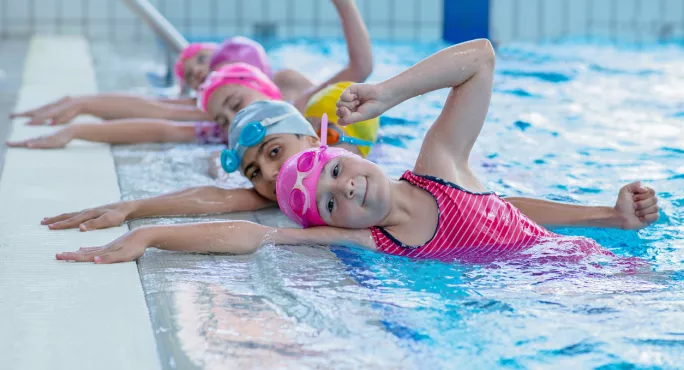- Home
- Councils call for school lessons on cold water shock
Councils call for school lessons on cold water shock

Pupils must be taught about the dangers of cold water shock, council leaders said today, as new figures showed that the number of young people drowning accidentally rose by nearly a quarter last year.
The latest data from the National Water Safety Forum shows that the number of people aged 19 or under who drowned accidentally in the UK increased by 24 per cent, from 25 in 2017 to 31 in 2018.
Water safety: Schools are struggling to offer swimming lessons, say most teachers
Swimming lessons: Schools ‘failing’ children on swimming lessons
Sports facilities: The school where pupils fly to swimming lessons
To mark Drowning Prevention Week, which takes place from June 14 to June 24 this year, the Local Government Association has issued a water safety warning as rising temperatures may tempt people to swim in open water.
The LGA has also called for the dangers of cold water shock to be taught in swimming lessons in UK schools, or during PSHE lessons if schools do not arrange swimming lessons for pupils.
Teaching water safety
Cold water shock can affect breathing and movement among the most confident of swimmers, and is one of the biggest causes of drowning. It can take hold when people enter or jump into cold seas, rivers, canals and lakes where temperatures can be as low as 15C in the summer.
The NWSF figures showed that 263 people died from accidental drownings in the UK in 2018, a slight increase on the 255 drownings in 2017.
Some drowned without meaning to enter the water, as the number of people who drowned while walking or running - 93 - is almost double the combined figure of 51 for those who drowned when swimming or after they had jumped or dived into open water.
Those who fall into open water can increase their chances of survival by fighting their instinct to swim, and floating instead for a minute or two.
This will help them to regain control of their breathing while the effects of cold water shock pass, before they try to swim to safety or call for help.
Councillor Simon Blackburn, chair of the LGA’s Safer and Stronger Communities Board, said: “Teaching children about the dangers of cold water shock while they learn to swim or as part of PSHE lessons would be a simple way to improve water safety across the country and could make the vital difference in helping to save lives and avoid the tragic aftermath for families.
“Many people drown after having had no intention of going into particularly deep water or after entering the water on the spur of the moment, so the need for education is clear if water-related deaths are to be reduced.
“A 50-metre swimming badge awarded in a calm, heated swimming pool doesn’t mean someone will survive if they deliberately or accidentally enter a cold canal or a fast-flowing river.”
“This is because cold water shock severely limits everyone’s ability to swim and rescue themselves, irrespective of the strength of the swimmer.”
Mark Lehain, from pressure group Parents and Teachers for Excellence, which campaigns against unnecessary additions to the school curriculum, agreed that the dangers of cold water shock should be taught in schools.
“Swimming and the importance of water safety have long been things schools teach their pupils, and rightly so. Adding cold water shock dangers to this makes sense, as it would require minimal additional time but could make a big difference if it was ever needed for real,” Mr Lehain said.
Register with Tes and you can read two free articles every month plus you'll have access to our range of award-winning newsletters.
Keep reading with our special offer!
You’ve reached your limit of free articles this month.
- Unlimited access to all Tes magazine content
- Save your favourite articles and gift them to your colleagues
- Exclusive subscriber-only stories
- Over 200,000 archived articles
- Unlimited access to all Tes magazine content
- Save your favourite articles and gift them to your colleagues
- Exclusive subscriber-only stories
- Over 200,000 archived articles



